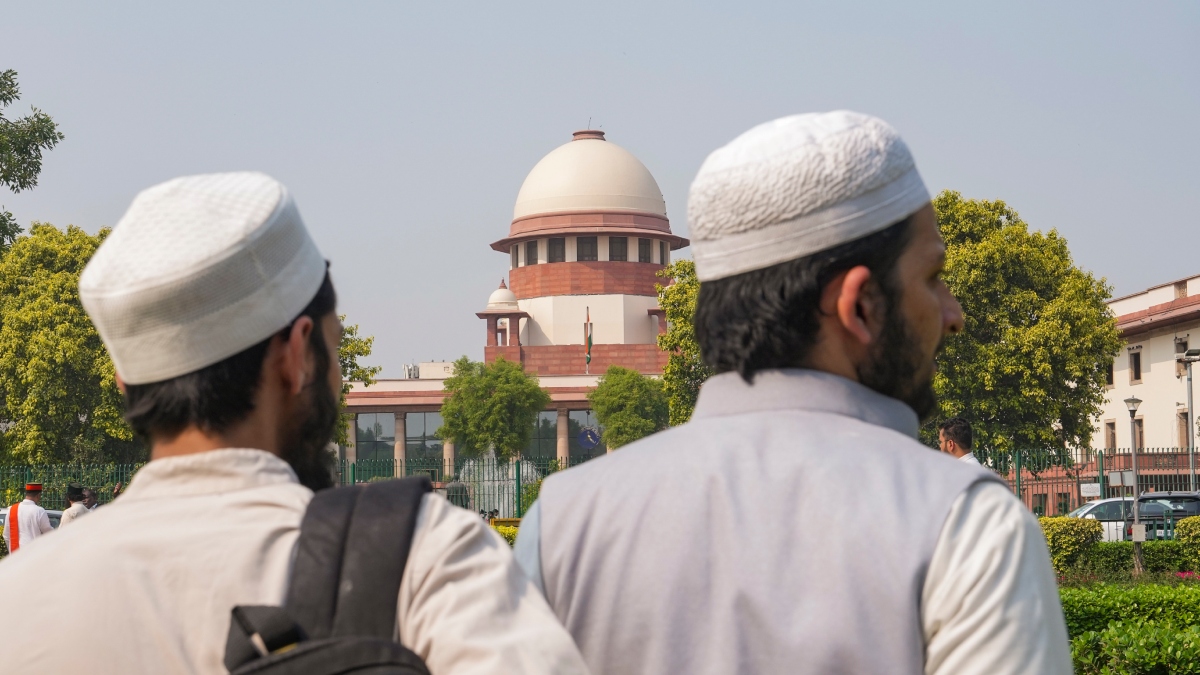Waqf Act: Centre says amendment will not affect individual’s religious right to create Waqf
 The Supreme Court questioned the Centre about the decision having non-Muslims as majority members in Waqf Council | PTI
The Supreme Court questioned the Centre about the decision having non-Muslims as majority members in Waqf Council | PTI
On Friday, the central government filed its response in the Supreme Court, urging the dismissal of petitions challenging the constitutional validity of the Waqf (Amendment) Act, 2025. Centre told SC that for the last 100 years, Waqf by user is recognised only upon registration and not by word of mouth and the amendment was in sync with consistent practice.
Calling the legislation a valid and lawful exercise of legislative power, the Centre defended the amendments and opposed any interim relief sought against its provisions.
In its 1332-page affidavit filed by Shersha C. Saidik Mohiddin, Joint Secretary, the Ministry of Minority Affairs, Centre said there will be a maximum of two non-Muslims among 22 members in the Waqf Council and Waqf Boards, a measure that is representative of inclusiveness and not intrusive of the administration of Waqfs.
"The Waqf Act, 1995 conferred recognition of Waqfs as a valid statutory dedication of property and that remains unchanged continuing to protect the religious rights of a Muslim individual or a community in general. The secular provisions of proving such a dedication, and the management of such properties including preventing their waste or misuse are permissible under the constitutional framework," the affidavit stated.
Centre said that the identification of government land deliberately or wrongly mentioned as Waqf properties is to set the revenue records right and that government land cannot be treated as land belonging to any religious community.
"The Waqf (Amendment) Act, 2025, very clearly limits itself to secular dimensions (like record management, procedural reforms, and administrative structure) and not any matters of ritual, prayer, or fundamental Islamic obligations. It is submitted that therefore the Act, by confining itself to non-essential practices, steers well clear of infringing the religious freedoms guaranteed by the Constitution,” the affidavit reads.
Centre defended the Act by saying that Waqf laws have been misused to encroach on government and private land. “Between 2013-2024, there was an increase of at least 20 lakh acres of land or 116% increase of Waqf properties which called for a serious relook at the law,” it said.
Urging the Supreme Court not to grant any stay on the Act, the Centre said constitutional courts do not grant stays on statutory provisions, either directly or indirectly, while the case is still being heard. Instead, such matters are to be decided after a final judgment.
“There is a presumption of constitutionality that applies to laws made by Parliament and an interim stay is against the principle of balance of powers. The law has been made on the recommendations of a Joint Parliamentary Committee followed by an extensive debate in both Houses of Parliament,” the reply stated.
The affidavit further stated that a deliberate, purposeful and intentionally misleading narrative is built very mischievously, giving an impression that those Waqfs which do not have a document to support their claims will be affected.
A bench headed by Chief Justice of India Sanjiv Khanna is slated to hear the matter on May 5 on the passing of interim orders.
“The changes in the law have been introduced solely to ensure better management and transparency,” the affidavit stated.
"Taking away the statutory protection to a Waqf by a user does not deprive a person of the Muslim community to create a Waqf," stated the Centre.
'Waqf by user' refers to land or property that is considered Waqf due to its long-term use for religious purposes. Even without formal documentation or a written deed, such property could be declared 'Waqf by user', depending on its usage over time.
"It is submitted that despite the existence of the concept of 'Waqf by user', the requirement of registration or self-declarations before the court was made mandatory in order to ensure that the regulatory provisions of the enactments achieve the intended objectives. It is submitted that therefore, there has been a clear and mandatory legislative regime, which has sought to enforce and implement registration requirements on all kinds of Waqfs since at least 1923," the affidavit reads adding that Centre said that it is too late in the day for anyone to claim today that although it claims to be a genuine Waqf, it is still not registered.
The issue of trusts created by Muslim persons will not be governed by the Waqf Act, the affidavit stated.
“The Amendment Act reaffirms that identification, classification, and regulation of Waqf property must be subject to legal standards and judicial oversight. It is submitted that the legislative design of the Waqf (Amendment) Act, 2025 ensures that no person is denied access to courts and that the decisions affecting property rights, religious freedom, and public charity are made within the bounds of fairness and legality. It is submitted that through these changes, the Amendment Act brings judicial accountability, transparency, and fairness.”
India